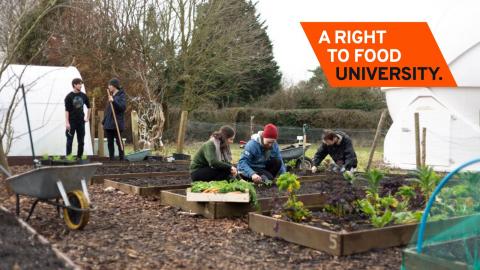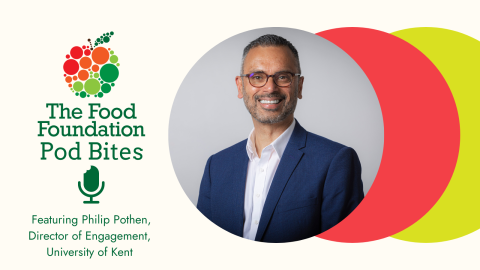13 December 2023
Why access to healthy food should be a human right
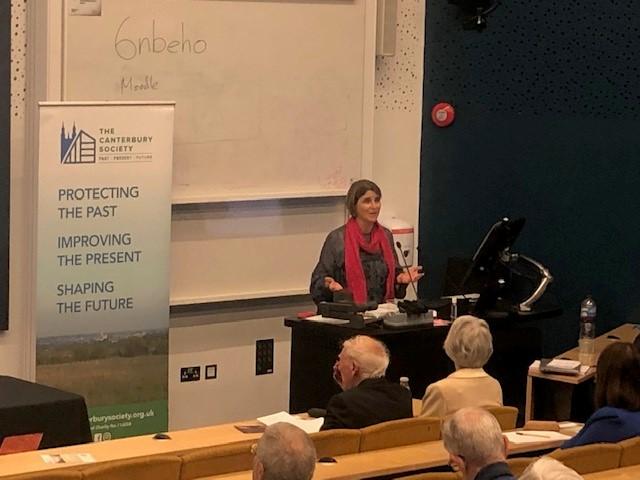
Food should not be seen as a commodity but something everyone is entitled to
In February 2023 the University of Kent launched The Right to Food University initiative in partnership with The Food Foundation. This blog summarises why we believe universities can play a role in changing the food system, Kent’s progress so far, and how this project hopes to inspire a broader movement.
Why should universities promote The Right to Food?
At The Food Foundation we recently ran an informal listening session with Food Ambassadors aged 18 to 25 who told us that the idea of a financially struggling student only eating unhealthy food, or the same diet of pot-noodle, pasta and cheese, had become normalised and accepted.
This acceptance of suboptimal student diets chimes with the relative lack of research in the UK into food insecurity amongst university students.
Universities can play a role in challenging these views: the levels of student food insecurity, which in some surveys are as high as one third, should be a spur to action.
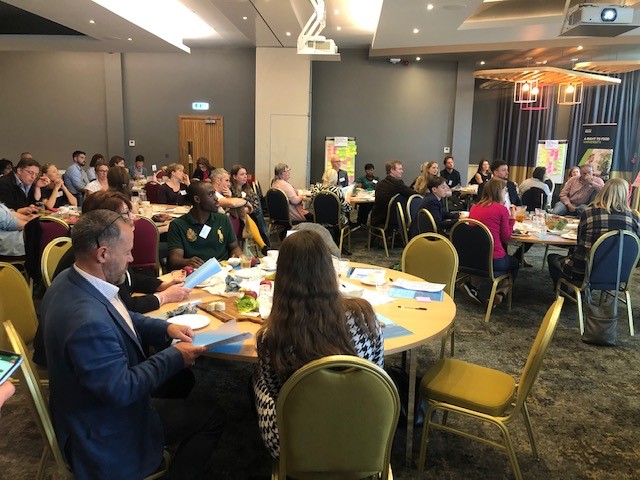
Guests at the TUCO conference
Fortunately, many universities are responding to the issue, for example tracking food insecurity levels through surveys (see Kent Union), or implementing cost-of-living food subsidies in their canteens (e.g. University of Bristol).
The Right to Food University initiative calls for long-term fixes to food insecurity, and a whole university approach to food.
Whilst the Right to Food has never been incorporated into UK law, universities can act as pathfinder places, demonstrating how we can move from treating food as a commodity to something everyone should be entitled to as a key human right.
The initiative's four missions bring together the tools that we believe universities could use to create a more sustainable and equitable food system.
These tools include universities’ teaching and research capacity, their role in providing and procuring food, their facilities including kitchens and growing spaces, and their influence over their localities or regions.
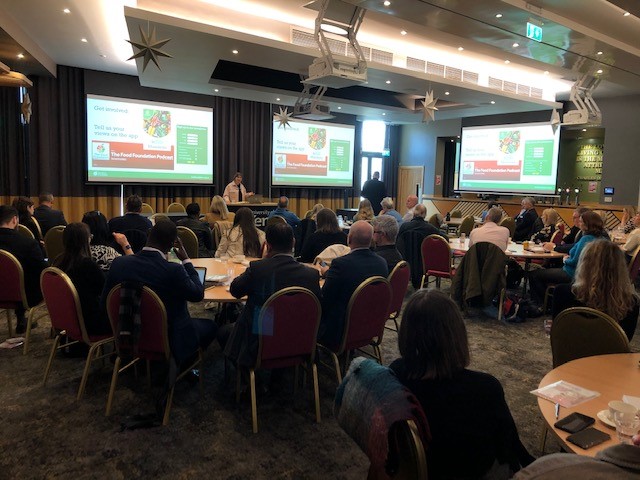
Our Executive Director Anna Taylor opening the event
Progress at the University of Kent:
Since committing to this initiative, the University of Kent has implemented changes across the four mission areas.
Just last week, as part of mission 1 ‘Putting the Right to Food on the World Stage’ – sharing learning and raising awareness of what universities can do to promote the Right to Food – they hosted the TUCO conference, on the theme of ‘Cost of Living Crisis’.
Attended by in-house catering teams from universities across the UK, and wholesalers, the event was opened by The Food Foundation’s Anna Taylor, who shared how we are tracking businesses progress as part of Plating Up Progress.
This prompted a frank discussion about the pressures on university caterers, including how to balance rising food costs with cost of living support and subsidies for students and staff, whilst also maintaining a commitment to sustainability and health on menus.
At the event, we also heard from Kent student Rapheal Mutu about the inspiring Kent Gleaning Collective, set up by The University of Kent in partnership with Produced in Kent, which brings volunteer students and locals to East Kent Farms to collect surplus food, which is then stored on campus until it is redistributed to food charities.
Working with 53 volunteers across 15 farms, this term the project has redistributed 5802kg of fruit and vegetables.
This gleaning project is just one example of Kent’s progress in engaging with regional food issues, as part of mission 4, to ‘Address Food Inequality in the Region.’
Earlier this year, the university hosted the Kent Food Summit 2023, bringing together over 90 representatives from local food charities, the local authority, food producers and businesses.
In a series of interactive workshops, the attendees provided feedback on the strategic priority areas established by the newly formed Kent Food Partnership, and suggested ways the university could provide support, such as offering university kitchen space and facilities to food charities and providing research capacity to map local supply chains.
The university is now looking at how it can incorporate some of these suggestions into its Right to Food action plan alongside many other initiatives that are underway, including a new open seminar series exploring food across the curriculum and a Sustainable Food Action Plan that sets targets for the catering and procurement teams.
Inspiring a Right to Food University movement:
Whilst the University of Kent is drawing on its existing strengths to drive forward this initiative, we recognise that this is a learning process.
Each university will hold unique levers and face different challenges in driving food system change. What is essential is that the process is collaborative, with each university community and region working together to decide what actions to take:
"People should have the power to decide what 'good food' means for their own community, and the power to eat with dignity," Michael Fakhri, United Nations Special Rapporteur on the Right to Food, at University of Kent Centre for Critical International Law in March 2022.
Recognising these differences across university institutions, we are developing a Right to Food framework to be piloted in 2024.
This framework will share best practice in the form of case studies and how to guides, from across the sector, and provide a guide to becoming a Right to Food University.
If you would like to share a case study of a food initiative from a university, or hear more about the project, please email righttofood@kent.ac.uk. You can also hear more about the project in our latest Pod Bites episode here.
- Keep an eye on our own and Kent's website, contact righttofood@kent.ac.uk or follow #RightToFood for updates on Kent’s journey to becoming a Right to Food University.

